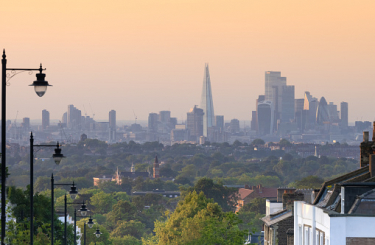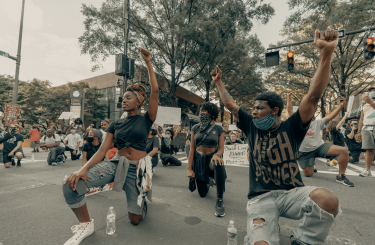Related


Ubele, Women’s Resource Centre, Consortium and Inclusion London have been working on developing a London specific funding framework detailing the principles and practice they believe are most effective at reducing structural inequality within and beyond the London Community Response – here they share their thoughts on how we can move towards justice.
Structural inequality goes beyond recognising that certain groups are treated badly or less favourably and providing a range of ‘equality of opportunity’ approaches in response; it is about understanding that our society is built on and actively depends upon the systematic oppression and discrimination of women, BAME communities, Disabled people, LGBT+ people and people locked in poverty.
Violence, othering, prejudice, marginalisation, exclusion and poorer health and life opportunities and outcomes, and the intersections of these experiences, are all causes and consequences of society run in this way. To address this effectively we need whole system change that goes beyond trying to ensure equality of opportunity.
It is crucial to explicitly acknowledge that inequity is built in to the system, by being honest about this you can design your interventions in the context of this challenging reality, not despite it. This acknowledgement is part of a growing call to ensure responses to covid-19 approach funding from this structural understanding. Charity So White and Equally Ours are developing funding principles and practice which reflect this approach which we support and that we will be basing our framework and our more immediate proposals on.
Key to these principles and our approach is the primary importance of supporting the self organisation of our marginalised and discriminated against communities. All progressive social change has been brought about by communities themselves resisting oppression, providing peer support, developing understanding and taking and demanding action.
We believe it is vital to actively address and reduce structural inequality by prioritising the support of, and investment in, equalities organisations that are run by and for the discriminated against communities they represent and serve both at a frontline and infrastructure level. Our user-led community organisations are complex ecosystems that make a huge contribution to our communities and wider society. We are creative, innovative and resilient but also extremely fragile and under threat. Urgent and targeted action is needed.
Funding Design priorities: We have highlighted the following three funding design priorities that we believe will be key in enabling the London Community Response to begin to address the deep structural inequalities that covid-19 has revealed so starkly. We hope, in collaboration with funders, to develop and build upon these three areas of work so we can together create a longer term funding vision and framework that will bring help bring about the tangible change and the transfer of power and resources needed to counter the enormous weight of structural inequality.
Our three funding design priorities we are proposing for the London Community Response and beyond are:
London Funders members will see a list of further reading linked to the thoughts in this blog in the “Funder Five” newsletter on 26 June 2020.

